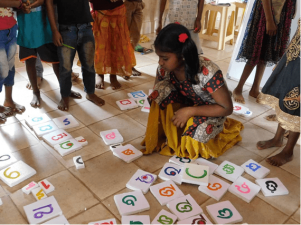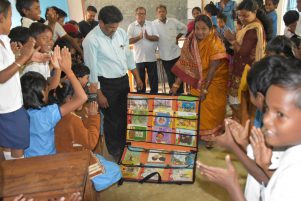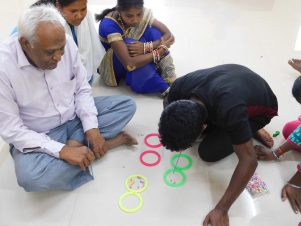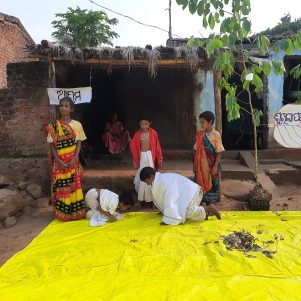- Education can bring a child and her family, out of economic and social misery, in one generation.
- Right method of educational interventions at the early age would shape the foundation for building the better citizens of tomorrow.
- Once the children start taking responsibilities for their learning and start exploring the world around them, a limited guidance will be required by them to grow to their full potential.
- Children from the underprivileged sections of the society, especially in rural areas, have the double disadvantages of lacking enabling learning environment (a) inside school and (b) at home and community level.
- It is a formidable task for the socio-economically underprivileged parents, to admit their children in a school that provide high quality education.
- It is beyond the capacity of most of the socio-economically underprivileged parents, to ensure an enabling learning environment at home.
- Since education is a social good, collective action and cooperation among parents and local community can ensure quality school education for all the underprivileged children: both ‘inside school and ‘outside school’.
- Education must be joyful, non-discriminatory and interesting: motivating students to seek knowledge and attend school.
- Students and teachers should be trusted and empowered to do the right things.
- The process of effective education includes many a failure. Hence, students are pushed to explore their limits, introspect, and learn. At the same time, they are provided with a safety net in the rare case that things go really wrong.
- Students and teachers must operate in a fear-free environment.
- Respecting and accepting diversity are important elements of education.
- Integrated use of Head, Hands and Heart are essential for education.
- Curriculum to address thinking, questioning, decision making, building perspective, effective communication, and removing prejudice and intolerance.
- Curriculum to include physical work, learning by doing, vocational studies, sports, culture, arts, and awareness of the world around.
- Ethics and Love, Compassion and Brotherhood, Creating Purpose, and finding the passion to pursue it, are intrinsic to Education.
- Education must be connected with the environment: Sri Aurobindo’s Principle of working “from the near to the far, from that which is to that which shall be”.
- Simplicity is valued over perfection, if simplicity helps that learning.





